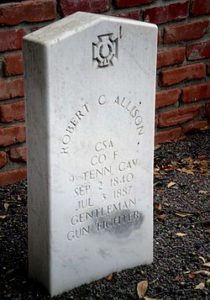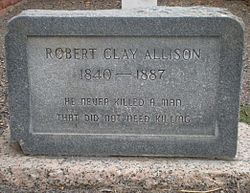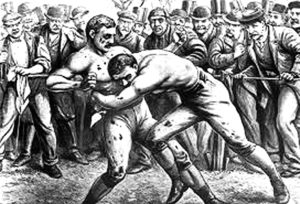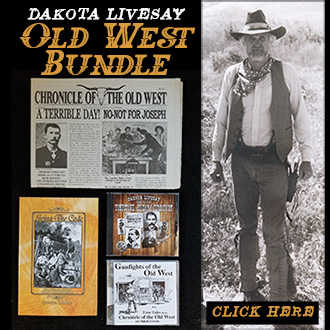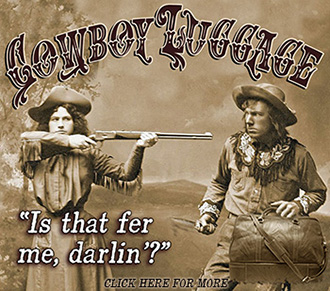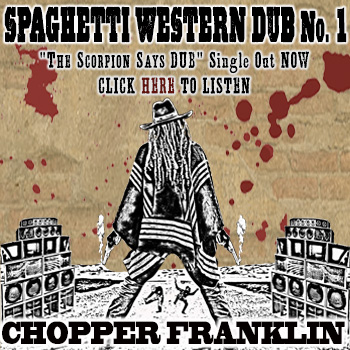 July 28, 1896, Record-Union, Sacramento, California – The daring and mysterious outlaw who has terrorized this section of the State for the past six weeks, holding up travelers, singly and in groups, in broad daylight and without any attempt at disguise, was run to earth by Sheriff Douglass of this city yesterday afternoon, and in the duel which followed both Sheriff and highwayman were shot to death.
July 28, 1896, Record-Union, Sacramento, California – The daring and mysterious outlaw who has terrorized this section of the State for the past six weeks, holding up travelers, singly and in groups, in broad daylight and without any attempt at disguise, was run to earth by Sheriff Douglass of this city yesterday afternoon, and in the duel which followed both Sheriff and highwayman were shot to death.
Posse after posse had been dispatched on the trail of the road agent, but he eluded them all and continued his work of impoverishing the traveling public day by day without molestation. Becoming discouraged over the failure of his deputies. Sheriff Douglass determined to hunt the robber single handed. Accompanied only by his dog, the brave officer set out yesterday morning. Nothing was heard from him during the day. This morning his dog returned home, and the Sheriff’s friends became anxious. A search party was organized, and in a short time the officer’s horse and buggy were found by the roadside a few miles from the city. Half a mile distant in the bushes the bodies of the Sheriff and the outlaw were discovered within a few feet of each other, both rigid in death.
The robber had been shot three times, one of the bullets entering his heart. Upon examination it was found that the brave officer had received his death wounds from the rear, evidently at the hands of the robber’s confederate. The outlaw’s camp was discovered, and showed traces of having been occupied by two men.
Fresh posses were immediately organized, and late this evening word was brought to the city that the murderer had been carefully surrounded in the woods and would undoubtedly be taken. Lynching is certain to follow his capture, as Sheriff Douglass was an exceptionally popular officer, and his friends are enraged and determined to avenge the assassination.
The dead outlaw has been identified by several of his victims, but otherwise his personality remains a mystery.
LATER —No further advices have been received to-night from the numerous posses of Deputy Sheriffs and citizens engaged in the search tor Sheriff Douglas’ supposed assassin. The city presents an unusually lively appearance tonight, the streets being thronged with crowds of anxious citizens, eagerly awaiting news from the scene of the tragedy. The dead outlaw has been identified by M. L. Marsh as a man who worked in his sawmill during the month of May last. While in Marsh’s employ he passed as C. Meyers.
Under Sheriff Pascoe, who went out this morning to search for Sheriff Douglass, had not returned at 11 o’clock tonight, and grave fears are entertained that he may have been ambushed and slain. A large posse has been formed to search for him. It is hardly probable that Pascoe would have remained out so long if something had not happened. He is a son of the late W. H. Pascoe, who was killed by Fredericks three years ago while Sheriff of this county.
Dr. Tricknell conducted a post-mortem examination over the bodies of Sheriff Douglass and the outlaw to night. He said the men had been dead fifteen hours.
The rifle used by the robber was stolen from Grant Dart of Rough and Ready, eight miles from here. The dead robber worked for two days at Marsh’s sawmill in this town and also worked for two days at Lord’s livery stable in Grass Valley. He was seen in this city last Friday evening. He drank heavily. No one identified him as the tool-taker.
The murderer of Sheriff Douglass had robbed both his victims and the dead outlaw of all their clothing had been turned inside out, and everything they contained removed.
 Born in Austin, Texas in 1856, Frank Jones joined the Texas Rangers at the age of 17. He saw his first action when he and two other Rangers were sent after some Mexican horse thieves. In the process, the horse thieves ambushed the Rangers. Frank’s two companions were immediately taken out, but Frank was able to kill two of the bandits and capture a third.
Born in Austin, Texas in 1856, Frank Jones joined the Texas Rangers at the age of 17. He saw his first action when he and two other Rangers were sent after some Mexican horse thieves. In the process, the horse thieves ambushed the Rangers. Frank’s two companions were immediately taken out, but Frank was able to kill two of the bandits and capture a third. Born in Austin, Texas in 1856, Frank Jones joined the Texas Rangers at the age of 17. He saw his first action when he and two other Rangers were sent after some Mexican horse thieves. In the process, the horse thieves ambushed the Rangers. Frank’s two companions were immediately taken out, but Frank was able to kill two of the bandits and capture a third.
Born in Austin, Texas in 1856, Frank Jones joined the Texas Rangers at the age of 17. He saw his first action when he and two other Rangers were sent after some Mexican horse thieves. In the process, the horse thieves ambushed the Rangers. Frank’s two companions were immediately taken out, but Frank was able to kill two of the bandits and capture a third.


